Filter by
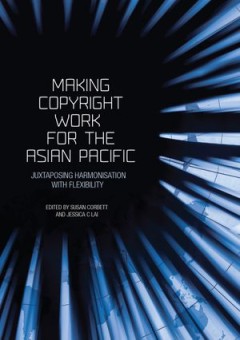
Making Copyright Work for the Asian Pacific : Juxtaposing Harmonisation with …
This book provides a contemporary overview of developing areas of copyright law in the Asian Pacific region. While noting the tendency towards harmonisation through free trade agreements, the book takes the perspective that there is a significant amount of potential for the nations of the Asian Pacific region to work together, find common ground and shift international bargaining power. Moreove…
- Edition
- -
- ISBN/ISSN
- 9781760462383
- Collation
- -
- Series Title
- -
- Call Number
- 340 MAK
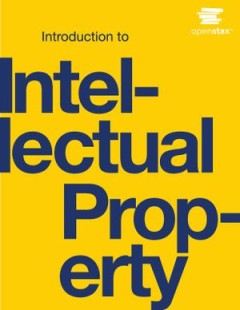
Introduction to Intellectual Property
Introduction to Intellectual Property provides a clear, effective introduction to patents, copyright, trademarks, and trade secrets. The text may be used by students and instructors in formal courses, as well as those applying intellectual property considerations to entrepreneurship, marketing, law, computer science, engineering, design, or other fields. The luminaries involved with this projec…
- Edition
- -
- ISBN/ISSN
- 9781951693343
- Collation
- -
- Series Title
- -
- Call Number
- 340 KLI i
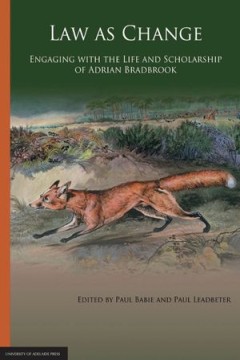
Law as Change : Engaging with the Life and Scholarship of Adrian Bradbrook
In 2011, Professor Adrian J Bradbrook retired from a distinguished scholarly career spanning over forty years. During this time, he made a significant contribution to teaching and scholarship not only in property law — specifically to leasehold tenancies law and easements and restrictive covenants — but also to energy law, especially the emerging and growing field of solar energy. This book…
- Edition
- -
- ISBN/ISSN
- 9781922064806
- Collation
- -
- Series Title
- -
- Call Number
- 340 LEA l
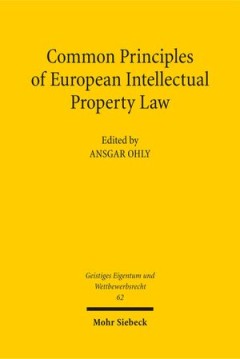
Common Principles of European Intellectual Property Law
Intellectual property law has been harmonized by EU law to a considerable extent. At the same time intellectual property rights have converged. The academic discussion has not kept pace with this development. European intellectual property law is often seen through the spectacles of national law; pan-European discussions about issues of Community law seem to be the exception rather than the rul…
- Edition
- -
- ISBN/ISSN
- 9783161518263
- Collation
- -
- Series Title
- -
- Call Number
- 340 OHL c
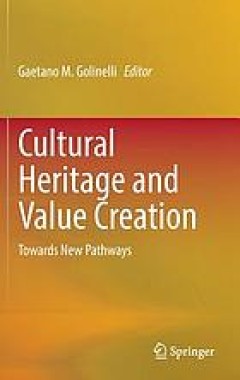
Cultural heritage and value creation : towards new pathways
Informed by systems thinking, this book explores new perspectives in which culture and management are harmoniously integrated and cultural heritage is interpreted both as an essential part of the social and economic context and as an expression of community identity. The combination of a multidisciplinary approach, methodological rigor and reference to robust empirical findings in the fertile f…
- Edition
- 1
- ISBN/ISSN
- 9783319085272
- Collation
- XI, 188
- Series Title
- -
- Call Number
- 363.69
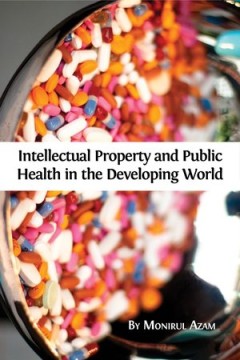
Intellectual Property and Public Health in the Developing World
Across the world, developing countries are attempting to balance the international standards of intellectual property concerning pharmaceutical patents against the urgent need for accessible and affordable medicines. In this timely and necessary book, Monirul Azam examines the attempts of several developing countries to walk this fine line. He evaluates the experiences of Brazil, China, India, …
- Edition
- -
- ISBN/ISSN
- 9781783742301
- Collation
- -
- Series Title
- -
- Call Number
- 340 AZA i
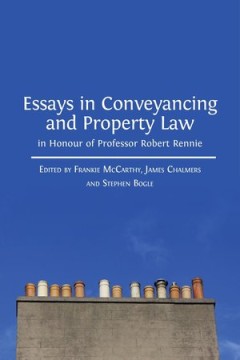
Essays in Conveyancing and Property Law : in Honour of Professor Robert Rennie
Professor Robert Rennie has been one of the most influential voices in Scots private law over the past thirty years. Highly respected as both an academic and a practitioner, his contribution to the development of property law and practice has been substantial and unique. This volume celebrates his retirement from the Chair of Conveyancing at the University of Glasgow in 2014 with a selection of…
- Edition
- -
- ISBN/ISSN
- 9781783741496
- Collation
- -
- Series Title
- -
- Call Number
- 340 ESS
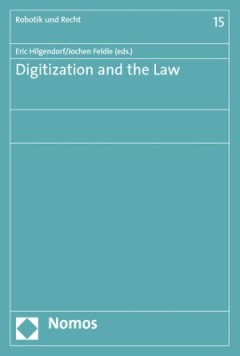
Digitization and the Law
"Digitization of information" means, to state it in the simplest way possi‐ ble, the representation of information as a sequence of zeros and ones. Digitized information can be edited, stored and easily transferred between computers. In view of the high power of today's computers and their glob‐ al networking via the Internet, this means that vast amounts of information can be processe…
- Edition
- -
- ISBN/ISSN
- 9783848747009
- Collation
- 140 halaman
- Series Title
- -
- Call Number
- 340 DIG
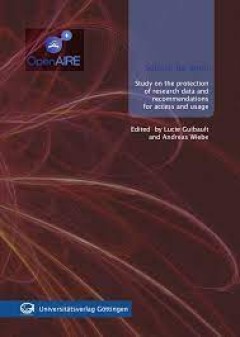
Safe to be open - study on the protection of research data and recommendation…
This study addresses the most important legal issues when implementing an open access e-infrastructure for research data. It examines the legal requirements for different kinds of usage of research data in an open access infrastructure, such as OpenAIREplus, which links them to publications. The existing legal framework regarding potentially relevant intellectual property (IP) rights is analyse…
- Edition
- -
- ISBN/ISSN
- -
- Collation
- -
- Series Title
- -
- Call Number
- -
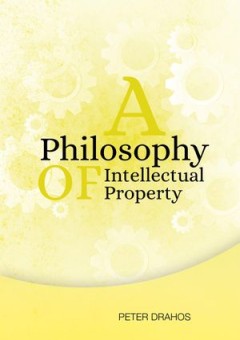
A Philosophy of Intellectual Property
Are intellectual property rights like other property rights? More and more of the world’s knowledge and information is under the control of intellectual property owners. What are the justifications for this? What are the implications for power and for justice of allowing this property form to range across social life? Can we look to traditional property theory to supply the answers or do we n…
- Edition
- -
- ISBN/ISSN
- 9781925022957
- Collation
- -
- Series Title
- -
- Call Number
- 340 DRA p
 Computer Science, Information & General Works
Computer Science, Information & General Works  Philosophy & Psychology
Philosophy & Psychology  Religion
Religion  Social Sciences
Social Sciences  Language
Language  Pure Science
Pure Science  Applied Sciences
Applied Sciences  Art & Recreation
Art & Recreation  Literature
Literature  History & Geography
History & Geography